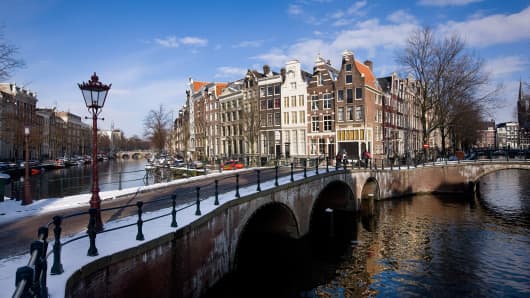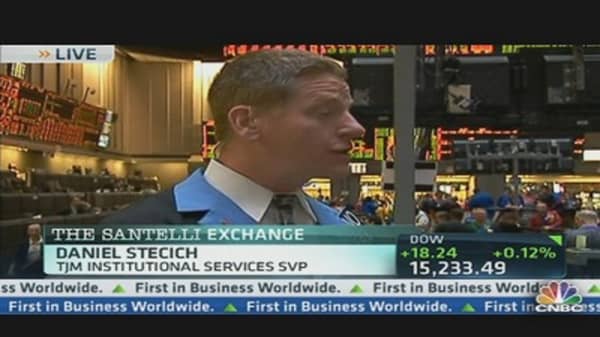Whichever way you look at it, the Dutch economy is on its knees. The country is staring in the face of a credit downgrade.
House prices have crashed, unemployment is rising, consumer spending has tightened and incomes have declined. What little manufacturing the country did has contracted further, social security dependence has grown, fringe politicians have garnered support.
The "green shoots" seen in the euro zone in the second quarter have failed to materialize in the country. Economists at Capital Economics have even labeled the country's performance in recent years as "abysmal".
As attention now turns to the Dutch government's budget plans - due to be unveiled on September 17 – experts say guiding the country out of its recession will be a long and painful process.
(Read More: 'Abysmal' Dutch economy threatens euro zone recovery)
Elwin de Groot, a senior market economist at Rabobank International believes it will require a combination of cures, including "strong" structural reforms in several industries. In housing, Groot says the market needs to be able to flow, to create better opportunities for people to sell, buy and rent. There has been a slew of measures already but more is needed, he said.
"It certainly won't be easy and it'll take many years," he told CNBC. In education, investing more in technical studies like engineering could deal with concerns regarding the Netherlands' long term (future), meaning a return to productivity and easing large discrepancies in the labor market.
"The government needs to stimulate research and development, the interaction between companies, and invest in universities," he said.
Bart van Leeuwen, a senior spokesperson for the Dutch Banking Association said that banks are very willing to help rekindle growth by giving out new loans as much as possible. It is important that the Dutch government facilitates economic stability and can stimulate house prices, he added.
(Read More: Debt-crippled Dutch wake up to housing crash)
"It seems that the Dutch government is trying to do as much as they can. But it should be noted that they have to operate within a difficult political context, as they have no majority in the senate. This causes some uncertainty. From an economic perspective that is undesirable," he told CNBC.
'There will be protests'
Simon Lelieveldt, an independent banking and compliance consultant who also writes about Dutch financial history, believes that main hurdle is a political one. The government is trying hard to cut expenses without making fundamental choices and politicians are scared to lose votes to the populist players that promise a lot but cannot deliver a consistent policy.





